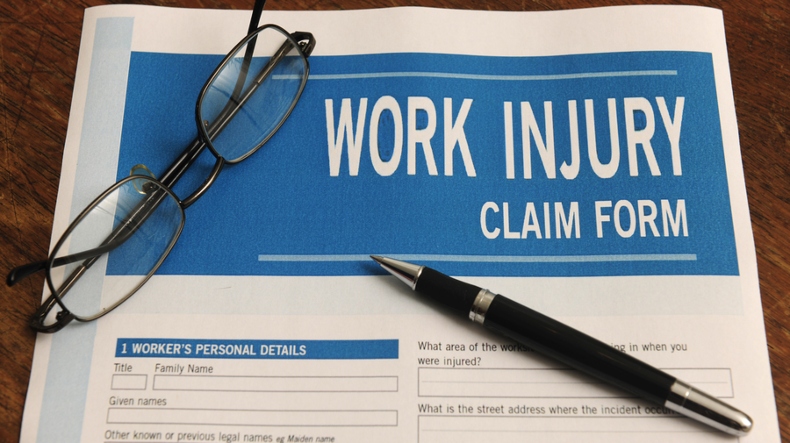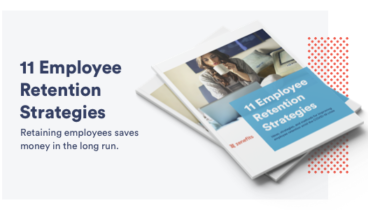WC for employees related to COVID-19 will vary by state and how the worker contracted the virus.

Here's what you need to know:
-
Workers’ compensation laws cover occupational disease and injuries that arise directly from the course of employment
-
More than a dozen states have updated their workers’ comp coverage to include first responders and healthcare workers who have contracted the coronavirus
-
Workers’ compensation insurance covers more than just hospital bills. Lost wages, death benefits, and lifetime loss of earnings also have coverage under most plans
-
For businesses that carry workers’ compensation insurance, expect costs to rise in the wake of COVID-19
Some in the business community are returning to work following COVID-19 shutdowns. Others have been open throughout the pandemic. For both, the global outbreak has caused a myriad of problems and challenges with regard to worker safety and health. Federal and local mandates aimed at helping workers impacted by the virus have often fueled confusion about sick leave and compensation.
In the background for virtually all businesses and staff members has been workers’ compensation insurance. For those employers required to offer coverage, the question arises, “Do workers have coverage under workers’ compensation if they contract COVID-19?” The answer is a murky “maybe.” It depends on the state you do business in and how the worker contracted the virus.
Does COVID-19 trigger workers’ comp?
Workers’ compensation laws cover occupational disease and injuries that arise directly from the course of employment.
According to the National Council on Compensation Insurance, whether or not an employee is eligible for workers’ compensation payments if they contract COVID-19 depends on a variety of factors. Workers’ compensation laws cover occupational disease and injuries that arise directly from the course of employment. However in many states, workers’ comp excludes common diseases like the flu or colds. Some may consider the widespread COVID-19 a common disease — excluding it from workers’ compensation coverage.
Another variable is whether or not the state in which you do business has added specific exceptions for the coronavirus. A list of states that have current rules that include or exclude COVID-19 is available and being updated as regulations change. The federal government mandated all federal employees who contract the disease are covered under its workers’ compensation program. States may be looking to that guidance to enact regulations locally.
State mandates
More than a dozen states have updated their workers’ comp coverage to include first responders and healthcare workers who have contracted the virus. These states, for the most part, presume that the employee got disease in the course of their work and is eligible for workers’ compensation.
Illinois has extended the presumption to all workers deemed essential during the pandemic. Wyoming covers all workers under its legislation. Another 4 states have enacted executive orders to cover first responders, with more extending that coverage to all essential workers. In California, and other states, employers have to verifiably prove the employee did not contract the virus through work to deny any workers’ comp claim.
More than a dozen states have updated their workers’ comp coverage to include first responders and healthcare workers who have contracted the virus.
Workers in a food plant in California were able to file claims for workers’ compensation coverage, with over 250 affected. In Colorado, however, workers are required to provide causation: proof they contracted the infection on the job. For business owners there, an employee must establish they contracted the virus solely from work and not other possible sources.
In Arizona, the state has not clarified the presumption clause of policies, but it has issued a policy statement requiring claims be reasonably investigated and not categorically denied. Any denial must be based on facts and evidence relevant to the worker’s individual claim.
The ultimate cost
It’s estimated the cost of covering workers’ compensation claims for COVID-19 just for the nearly 10 million American first responders could be up to $16 billion. Those that would pay the bill are:
- Employers who pay for insurance
- Those that self-insure
- Government agencies
Workers’ compensation insurance covers more than just hospital bills. Lost wages, death benefits, and lifetime loss of earnings also have coverage under most plans.
If a workers’ comp claim is denied
For business owners, the potential denial of an employee’s claim for workers’ compensation may be a deterrent for staffers to return to work — as well as a financial burden for those who have. There is some interim relief, however, as laws continue to change with regard to workers’ comp and COVID-19.
The Coronavirus Aid, Relief, and Economic Security (CARES) Act covers diagnosis and treatment of COVID-19, and also requires some employers to provide paid sick leave to staff members impacted by the disease. For businesses that provide healthcare coverage to staff members, some or most of the employee-paid cost of contracting the virus — whether probably attained through work or not — can help offset some of the financial burden, even if workers’ comp claims are denied.
The federal government has mandated private insurers must waive any cost-sharing payments (copays, etc.) for workers impacted by the virus. This means private insurance coverage must pay 100% of medical bills with zero financial impact on the employee.
For workers who do not have coverage under a private or employer-provided plan, there is also relief. Healthcare providers are able to submit claims to the Federal Department of Health Resources and Services Administration (HRSA) for reimbursement. For many workers whose providers submit claims to HRSA, there will be no cost for testing and/or treatment.
It’s important for businesses that don’t provide healthcare coverage to staff members to understand their and their employee’s rights. The CARES Act and HRSA mandates offer specific rights. Anyone who receives a bill for coronavirus treatment should clarify with their provider:
- Whether or not the charges were submitted to HRSA for reimbursement
- Whether or not they received payment or a denial
- What, if any, balance is due
Workers’ compensation and COVID-19 fallout
For businesses that carry workers’ compensation insurance, expect costs to rise in the wake of COVID-19. Even though minimal data is available on the price of claims due to the pandemic, businesses should expect higher costs. In California in June alone, 1 out of 5 of the workers’ comp claims were attributed to the coronavirus.
Data from Florida revealed about 30% of claims were attributable to the virus from March through May, with self-insured employers and carriers paying over $7 million in claims to workers. Reports say government paid 56%, insurers 29%, and 15% by private self-insured employers.
For small and medium-sized businesses, the ripple-effect of COVID-19 will go far beyond returning to business as usual. Most are already assuming there will be higher costs for unemployment benefits in the coming years; workers’ compensation insurance costs will also likely rise.





